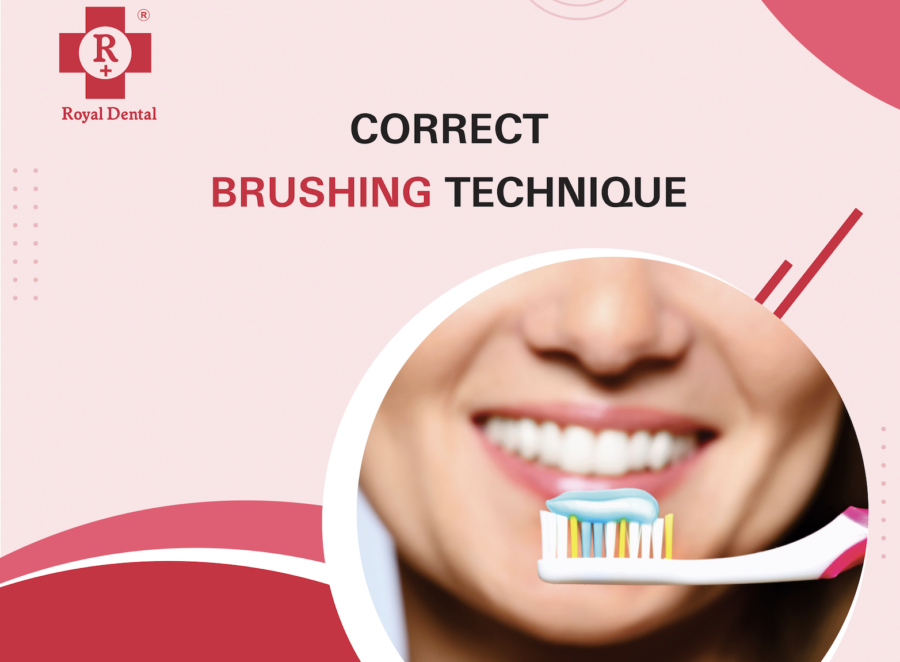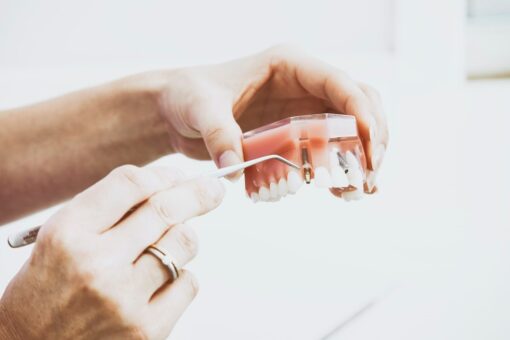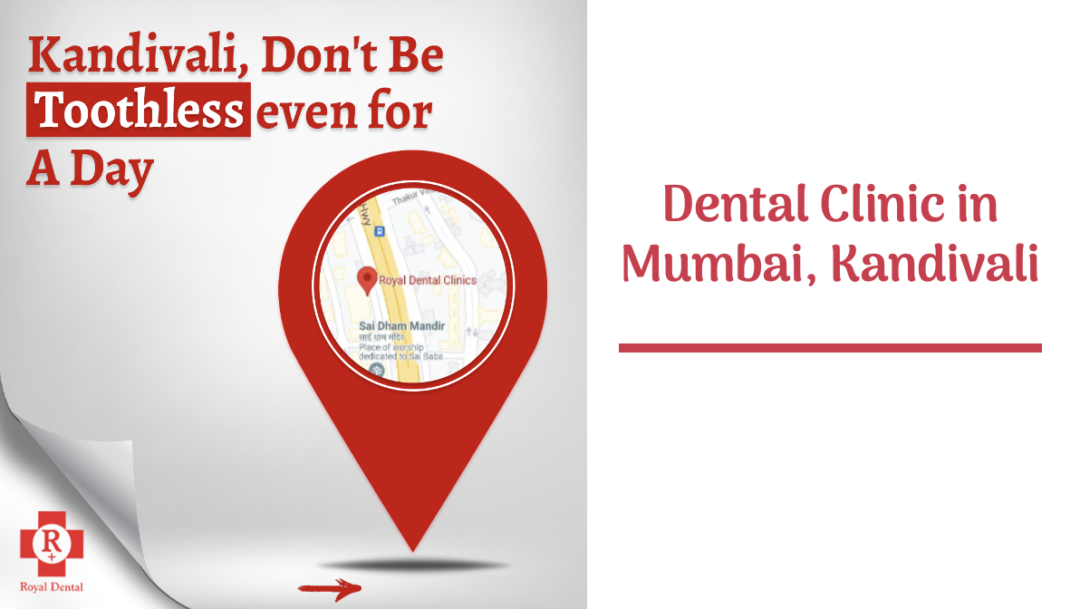Dental implants are a popular option for those who have lost teeth due to injury or decay. They are designed to look, feel, and function like natural teeth, and they offer a range of benefits that make them a worthwhile investment. However, they require proper care and maintenance to keep them healthy and strong. In this ultimate guide, we’ll explore everything you need to know about caring for your dental implants, from daily routines to potential risks and complications.
Importance of Oral Hygiene for Dental Implants
Proper oral hygiene is crucial for maintaining healthy dental implants. Just like natural teeth, dental implants are susceptible to plaque buildup, which can lead to gum disease and other complications. To prevent plaque buildup, it’s important to brush and floss regularly.
When brushing them, it’s important to use a soft-bristled toothbrush and gentle, circular motions. Avoid using abrasive toothpaste or hard-bristle brushes, as these can damage the implant’s surface. Additionally, be sure to brush all surfaces of your dental implant, including the crown, abutment, and surrounding gum tissue.
Flossing is also important for maintaining the health of your dental implants. Use a floss threader or interdental brush to clean around the implant and remove any food particles or plaque. Be gentle when flossing around your dental implant, as excessive force can damage the implant or surrounding tissue.
Benefits of Tooth Implant Maintenance
Dental implants offer a range of benefits that make them an attractive option for those seeking tooth replacement. They are durable, long-lasting, and can improve your overall oral health. Unlike other tooth replacement options, such as dentures, dental implants are anchored directly into your jawbone, which helps to stimulate bone growth and prevent bone loss. Additionally, they are designed to look and feel like natural teeth, which can boost your confidence and self-esteem.
Here are some of the benefits of dental implants:
- Appearance: They look and feel like natural teeth, and can improve your appearance and smile.
- Speech: Dental implants can help you speak more clearly and confidently, as they do not slip or move like dentures.
- Comfort: They are comfortable and feel like natural teeth, unlike dentures which can be uncomfortable or ill-fitting.
- Health: Dental implants do not require any special care beyond regular brushing and flossing, and they can help prevent gum disease and tooth decay.
- Eating: They allow you to eat your favorite foods without worrying about them slipping, moving or falling out.
- Long-lasting: With proper care, dental implants can last a lifetime.
Brushing Techniques for Implant Maintenance
When brushing your dental implant, it’s important to use a technique that is gentle and effective. Start by brushing the outer surfaces of your teeth and dental implant, using small, circular motions. Be sure to brush the gum line and the area where the implant meets the gum tissue.
Next, brush the inner surfaces of your teeth and implant using the same circular motion. Finally, brush the chewing surfaces of your teeth and implant. Be sure to brush for at least two minutes, twice a day.

It’s also important to use toothpaste that is specifically designed for dental implants. These toothpastes are formulated to be gentle on the implant’s surface and help prevent plaque buildup. Avoid using whitening toothpaste or toothpaste that contains baking soda, as these can be too abrasive for dental implants.
Flossing Techniques for Implant Maintenance
Flossing is an important part of maintaining healthy dental implants. To floss around your implant, start by threading the floss under the implant crown and gently pulling it through. Be careful not to pull too hard or use excessive force, as this can damage the implant or surrounding tissue.

Once the floss is threaded under the implant crown, use a gentle back-and-forth motion to clean between the implant and adjacent teeth. Be sure to floss both sides of the implant, as well as the surrounding teeth. If you have trouble flossing around your dental implant, consider using an interdental brush or water flosser. These tools can help to remove plaque and food particles from hard-to-reach areas.
Using Mouthwash for Implant Maintenance
Mouthwash can be a helpful addition to your oral hygiene routine when caring for them. Look for a mouthwash that is specifically designed for use with dental implants. These mouthwashes are formulated to be gentle on the implant’s surface and help prevent plaque buildup.
To use mouthwash with them, swish it around your mouth for 30 seconds, then spit it out. Be sure to swish the mouthwash around your implant and the surrounding gum tissue. Avoid using mouthwash that contains alcohol, as this can be too harsh.
Foods to Avoid after Implant
Hard or crunchy foods: Hard or crunchy foods like nuts, popcorn, and ice can put pressure on the implants and cause them to move or even break.
Sticky foods: Sticky foods like chewy candy, caramel, and taffy can stick to the implants and pull them out of place.
Very hot or cold foods: Very hot or cold foods can cause discomfort around the implants and irritate the surrounding gums.

Tough meats: Tough meats like steak or beef jerky can put stress on the implants and cause them to move or become damaged.
Carbonated beverages: Carbonated beverages like soda can cause acid erosion and damage to the surrounding teeth and gums, which can lead to implant failure.
Foods to Eat after Implant
Soft, cooked vegetables: Soft, cooked vegetables like carrots, zucchini, and squash are generally safe.
Soft fruits: Soft fruits like bananas, kiwi, and peaches are a good source of vitamins and minerals and easy to chew.
Eggs: Eggs are a great source of protein and easy to prepare in a number of ways.

Soft grains: Soft grains like oatmeal and quinoa are a good source of fiber and nutrients and easy to chew.
Fish: Soft, flaky fish like salmon and tilapia are a good source of protein and omega-3 fatty acids, which promote healing and reduce inflammation.
Yogurt: Yogurt is a good source of calcium and protein and is easy to eat after dental implant surgery.
Regular Dental Check-Ups and Maintenance
Regular dental check-ups are an important part of maintaining healthy dental implants. Your dentist can monitor the health of your implant and identify any potential issues before they become more serious.
During a dental check-up, your dentist will examine your implant and surrounding gum tissue to ensure everything is healthy. They may also take x-rays to check the position of the implant and the health of the surrounding bone.
In addition to regular check-ups, it’s important to maintain good oral hygiene habits at home. Brush and floss regularly, and be sure to follow any additional care instructions provided by your dentist or implant specialist.
Common Problems with Dental Implants
Implant Failure: While rare, dental implant failure can occur if the implant does not fuse properly with the jawbone. Factors that can contribute to implant failure include poor bone density, infection, and smoking.
Infection: Infections can occur around the implant site and can cause pain, swelling, and implant failure. Good oral hygiene and regular dental check-ups can help prevent infections.
Peri-Implantitis: Peri-implantitis is a type of infection that occurs around the implant and can lead to bone loss and implant failure. It can occur if the implant is not properly maintained and can be difficult to treat.
Nerve Damage: Nerve damage can occur during the implant procedure and can cause numbness, tingling, or pain in the gums, lips, or tongue. In rare cases, nerve damage can be permanent.
Implant Fracture: Dental implant fractures are rare but can occur if the implant is subjected to excessive force or trauma.
Allergic Reaction: Allergic reactions to implant materials are rare but can occur in some individuals.
Sinus Problems: Dental implants placed in the upper jaw can sometimes protrude into the sinus cavity, causing sinus problems and discomfort.
Crown or Bridge Problems: The crown or bridge attached to the implant may become loose or damaged over time and may need to be repaired or replaced.
Conclusion
Dental implants are an excellent investment in your oral health, but they require proper care and maintenance to keep them healthy and strong. By following the tips and techniques outlined in this ultimate guide, you can keep your dental implants in excellent condition and enjoy all the benefits they have to offer. Remember, proper oral hygiene habits, regular dental check-ups, and a healthy diet are key to maintaining healthy dental implants for a lifetime of healthy smiles.






